Notes From the Lampert Library
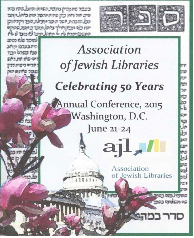 I recently attended the Association of Jewish Libraries (AJL) annual conference held this year in Silver Spring, Maryland, outside Washington D.C.
I recently attended the Association of Jewish Libraries (AJL) annual conference held this year in Silver Spring, Maryland, outside Washington D.C.
AJL, an international association of librarians who work in Judaic libraries of all kinds, is divided into two divisions: one serving schools, synagogues and centers and the other focusing on colleges, universities, and research centers. Each group has programs and workshops geared for its particular audience. However, what’s unique about AJL is that we all rub shoulders together through overlapping programs that unite our joint mission of promoting Jewish books and Judaic research.
I was privileged to attend a pre-screening of a new documentary from Aviva Kempner, a filmmaker based in Washington D.C. Kempner’s mission is to bring to popular attention stories of unsung Jewish historical figures.
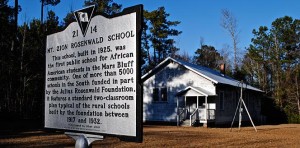 Kempner’s latest film Rosenwald tells the story of Julius Rosenwald, Sears Roebuck magnate, whose philanthropic vision built more than 5000 schools to educate black children in the American South. This is the third in what Kempner calls films documenting the lives of “under-known Jewish heroes.” It joins The Life and Times of Hank Greenberg and Yoo-Hoo, Mrs. Goldberg, both of which have been screened commercially in local theaters.
Kempner’s latest film Rosenwald tells the story of Julius Rosenwald, Sears Roebuck magnate, whose philanthropic vision built more than 5000 schools to educate black children in the American South. This is the third in what Kempner calls films documenting the lives of “under-known Jewish heroes.” It joins The Life and Times of Hank Greenberg and Yoo-Hoo, Mrs. Goldberg, both of which have been screened commercially in local theaters.
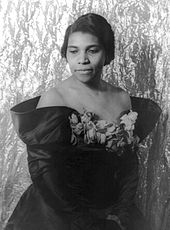 Rosenwald funds also made study grants available to scholars, artists, writers, and musicians until 1948 when the fund, at Rosenwald’s request, sunsetted. A list of recipients reads like a who’s who of cultural icons: Langston Hughes, Marion Anderson, Jacob Lawrence, Ralph Ellison and hundreds more. The program also offered fellowships to white Southerners, like Woody Guthrie, who had an interest in and concern for race relations.
Rosenwald funds also made study grants available to scholars, artists, writers, and musicians until 1948 when the fund, at Rosenwald’s request, sunsetted. A list of recipients reads like a who’s who of cultural icons: Langston Hughes, Marion Anderson, Jacob Lawrence, Ralph Ellison and hundreds more. The program also offered fellowships to white Southerners, like Woody Guthrie, who had an interest in and concern for race relations.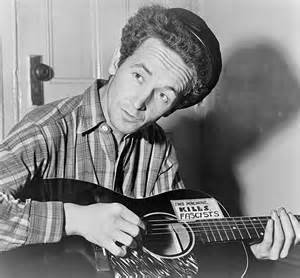
Some of you may remember the exhibit, mounted about five years ago at the Montclair Art Museum that focused on the Rosenwald Fund and its effect on African American art. The catalog of that exhibit would be a good preview to viewing the film.
The film relies heavily on archival photos and interviews with black leaders, many of whom received their early education at schools built with Rosenwald funds. A large number of these schools still stand in small communities through the south. Preserving the schools, some of which have been repurposed, is part of our country’s national preservation effort.
Information on the Rosenwald Schools is available in the Fund Archives housed at Fisk University.
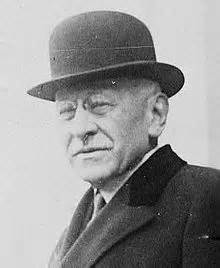 Kempner’s Film will open at both the Clairidge Cinemas in Montclair and the Maplewood Cinemas on August 21 and is an excellent example of the Jewish concept of tzedakah and of providing recipients with the tools to sustain themselves.
Kempner’s Film will open at both the Clairidge Cinemas in Montclair and the Maplewood Cinemas on August 21 and is an excellent example of the Jewish concept of tzedakah and of providing recipients with the tools to sustain themselves.
For Further reading:
A Force for Change (catalog of the 2010 exhibit at the Montclair Art Museum)
Ascoli, Julius Rosenwald
Deutsch, You Need a Schoolhouse
Finkelstein, Schools of Hope
Weatherford, Dear Mr. Rosenwald
- Is It Passover Yet? - Thu, Apr 18, 2024
- MESH Report April 9, 2024 - Thu, Apr 11, 2024
- Guess Who? - Wed, Mar 13, 2024
